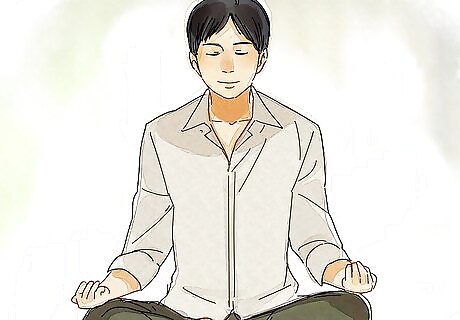
views
Unearthing Your Ancestry

Check non-identifying records. Practically every U.S. state allows adoptees to view non-identifying records surrounding their birth and adoption. These include information such as birth date and time, general physical characteristics and ages of the parents at that time, stated reasons for adopting out the child, and more. They don't have any information that can be quickly or easily used to track down birth parents, but such records can narrow the search considerably and provide a good starting point.

Check identifying records. Depending on where you were born, your identifying adoption records (that is, records that include names and addresses) may be open, meaning that you can request and view them to find out more about your heritage. However, to protect adoptees and biological parents alike, some states strictly seal their identifying adoption records. Still other states operate on a “mutual consent” principle, meaning that your birth parents would have to have granted their consent before you could access identifying records.

Look into reunion registries. Reunion registries aim to get around the problem of sealed adoption records by connecting adopted people with the parents who put them up for adoption when they were younger. People post details about themselves and scan each others' posts trying to find likely matches. Reunion registries can and do work; however, they're only effective when both parties know about them and are willing to post in them. The most popular reunion registry collection is at http://reunion-registries.adoption.com/.

Learn your legal options. In some cases, if there's a lot of resistance from other parties or the government, and you're particularly determined to learn more about your past, legal maneuvering and activism can become useful tools. There are various organizations that staunchly support the right of adoptees to learn about their genetic history, and provide resources and knowledge for those engaged in a struggle to win that right. Chief amongst these is Bastard Nation, “the adoptee rights association.” Bastard Nation advocates for adoptee rights and provides access to in-depth knowledge about the legal rights of adoptees in every state. Their website is at http://www.bastards.org/.

Be aware of the risks. The cold truth is that not every biological parent welcomes contact from children they adopted out. Such contact can be seen as disruptive or invasive, especially in cases where the fact of the adoption was kept a secret from their current family and friends. Some states actually require counseling before allowing adoptees access to identifying records, to ensure that they understand this fact. Whatever you do, tread gently and reach out cautiously before you take a plunge into an impromptu meeting or call.

Avoid investigative services. In almost all cases, hiring a private investigator won't be worth the money. Freely available knowledge and resources will usually carry you at least as far as a private investigator will, in this sort of work. That said, there may be some situations where outside assistance is called for; in those cases, be very careful and do your homework before hiring anyone. Be sure your terms are clear, and that the investigator has a strong positive reputation so that you don't end up getting scammed. As with any contract for services, be sure you get a copy of your investigation contract in writing, and review it with a lawyer before signing it.
Finding Yourself

Make lists and keep them. Making a list is one of the best ways to organize your thoughts. Even in the face of a heady question like “who am I?” or “what do I really want out of life?”, a list can be remarkably useful. Once you have a list, keep it close at hand and add to it, remove from it, or alter it as you see fit. Over time, a clearer picture of your priorities will begin to emerge. Start by refining your basic question. It's difficult to think about yourself objectively, so the broader your question is, the more trouble you'll have coming up with comprehensive answers to it. Instead of just asking “what is my true identity?”, ask “what personality traits do I admire and try to exemplify?”, or “what do I value in a friend?”. You can ask yourself as many of these questions as you want, but keep a separate list for each. Don't resort to pat answers. If you're listing things you look for in your friends, words like “loyalty” and “reliability” are sure to pop into your mind first. That's fine, but try to think beyond the word to its meaning – do you really rely on loyalty in your friends, by telling them secrets and expecting them to be there for you at every turn, or is something else even more important to you? Maybe you'll realize that you look for friends who are more socially awkward than you, so that you can feel like the life of the party when you spend time together. Such realizations are what will help you begin to know yourself better. List negatives, but don't dwell on them. To truly understand yourself, it's important to know your weaknesses, fears, disappointments, and dislikes as well as the more positive aspects of your life. However, that doesn't mean you should focus on such things exclusively. If you find that there's a lot about yourself you don't like, try to come up with ideas about why you might exhibit those characteristics, and how you can change them. If your lists all seem to begin with “I hate my job,” try to come up with other, more positive lists: dream jobs, or things you wish you could change about your current job.

Read yourself and others. As your lists grow and change over time, it's helpful to come back to them regularly and read them over side by side to divine the items that are most important to you. However, self-focused exercises will only carry you so far. To truly expand your self-understanding, you must delve into philosophical, spiritual, and artistic works. You don't have to read everything. Not everybody finds the idea of reading Plato or Sartre appealing. Though you'll get the most out of such authors by taking the plunge and reading their important works cover to cover, you can also get a solid and helpful overview simply by reading abridged explanations of their philosophies. There's no shame in reading a Wikipedia article and some Cliff's Notes in lieu of the collected works of Arthur Schopenhauer, as long as what you read helps expand your self-understanding. Try fiction instead. Often, great works of literature also reflect philosophical systems of thinking, and reading such works can be a much less threatening prospect than tackling the dry foundational books. The famous Russian author Fyodor Dostoyevsky, for example, wrote stories informed by existentialist philosophy. Don't neglect the spiritual. Even if you've never felt particularly spiritual, reading the poems of Walt Whitman or the writings of ancient Chinese spiritual philosopher Laozi (Lao Tzu) can help you understand yourself in ways that logical analysis never will. If you've always had very rigid religious beliefs, don't be afraid to read the mythologies and philosophical works of other religions, either – very often, you'll find interesting and useful insights that pose no threat to your own belief system.

Accept your complexity. As a human being, you're extraordinarily complex, in ways you might never even realize. Understanding yourself completely is essentially impossible, as you're always changing, considering, and processing and analyzing new information and insights. However, you can achieve a practical, useful level of self-understanding. Be patient with yourself, and stay open to new thoughts and realizations. The better you know yourself, the more effectively you can control yourself and the general direction of your life. A part of accepting your own overwhelming complexity is acknowledging the complexity of others, as well. Sometimes, things are simply out of your control – that is the way of the world, both in nature and society. Just because things don't work out the way you tried to make them work out doesn't mean you're doing anything wrong.

Look to outside sources. Human beings are social animals, and there's no substitute for face-to-face interaction to really help you understand yourself. You can tell yourself you're a certain way, or that you'll react in a certain way in a given situation, but you often don't know for sure how you'll really feel about it until it happens. Place a high value on anyone with whom you can have a heartfelt talk and/or a spirited discussion. You may find such people in any of a number of places – a true friend, a supportive family member, or just an acquaintance who loves to talk about the same things that interest you. You can even hire a counselor or psychiatrist if you need a relatively impartial sounding board for your thoughts.
Spiritual Approaches

Look to your past culture. Cultural heritage can provide a great amount of context to a person's life. In the United States, some ethnic backgrounds are more celebrated than others – being of Irish descent, for example, is generally treated as more exciting than being of English descent – but the fact is, every culture and country on Earth has a fascinating history and its own set of unique values and attitudes. These can provide a great amount of insight into your “roots” as a person. Don't neglect to consider more recent history. Understanding the culture of your own birthplace can help you divine greater insights about yourself just as well as looking to the distant past.

Look to your family history. In some ways, learning the story of your own family, and how so many different lines converged to create you, can provide an even more powerful sense of self than hearkening to a past cultural identity. The effect is so strong that reverence or outright worship of one's dead ancestors was a central tenet of traditional belief systems in places as disparate as Iceland and China. By understanding your bloodline, you can begin to get a better sense of your place in the march of history, which can help guide your actions in the present. The study of one's ancestors is known as genealogy, and there are many resources available to help you fill in gaps. Check out libraries, local government records, cemeteries, and online databases and services as well (some are paid, others are free). One of the best resources to start out with is https://familysearch.org/, administered by the Church of Jesus Christ of Latter-Day Saints (the Mormons). They offer a wide range of searchable public records (not just Mormon records) for free. Once you have some idea about your family's history, speak to older relatives. They may or may not have many facts you don't already have, but they will have stories of your ancestors, stories that will help bring them to life and help you grasp your heritage in a way that all the birth and death records in the world can't.

Meditate. Meditation is a useful technique for gaining clarity of mind and insights into your true self. Meditation techniques vary widely, but the basics are almost invariably the same: get comfortable and focus on clearing your mind, then turn your attention to whatever you'd like to meditate on. Particularly deep meditation can even induce an altered state of consciousness such as a sense of one's body not existing, or a sense of being outside one's body. Outwardly-focused meditation is used by shamans to journey in the spiritual world, which they believe exists as a normally-unreachable plane of reality. Such journeys are used to make contact with elemental forces and spirits, hopefully to gain allies and guides that will give insight and direction to the practitioner in the physical world. Many people find that having such a “spirit guide” helps them feel more in tune with themselves. Inwardly-focused meditation can provide very powerful insights into your mind and spirit, and how they work. By blocking out the physical world and all outside influences, you can become intensely focused on yourself, viewing your personality as if through a clear lens. Such meditation can also lead to dream-like states, though visions induced in this manner tend to reflect the practitioner's personality more directly than those induced by shamanic meditation. Many people also consider intense praying to be a form of meditation, one that focuses on the ineffable divine rather than the internal spirit or external universe. If you're inclined to prayer, use it to help you understand your relationship with whatever force you pray to, not just to send pleas and thanks to it.

Interpret spiritual texts. More than just reading your favored holy book(s), this step involves contemplating the wisdom they offer you and seeking to fully grasp that wisdom in all its subtlety and depth. Such “close reading” can yield more than a lifetime of things to contemplate from a large volume such as the Holy Bible; even small works such as Laozi's “Classic of the Way and the Virtue” (the Dao De Jing) can easily provoke months or years of slowly unfolding insight with a single line. It is sometimes said that grasping the essence of the spiritual goes far beyond just a rational understanding of it, or even an emotional response to it. As you read and reread, strive to let the words and the meaning behind them digest slowly. Don't make the mistake of reading a holy text and thinking that once you can explain it, you understand it.

Keep records. As you explore yourself and try to connect with your own primary essence, keep close track of your thoughts and feelings. You don't have to share them with anybody else if you don't want to, but having a record of your journey will help you map out your journey no matter how far you go. Don't be embarrassed or ashamed to write down anything you feel is worth noting. Even if you have an insight that you think sounds completely ridiculous out of context, if you feel it's significant in some way, write it down so that you'll always be able to go back to it and contemplate it later on. In the end, your true identity is nobody's business but your own.


















Comments
0 comment